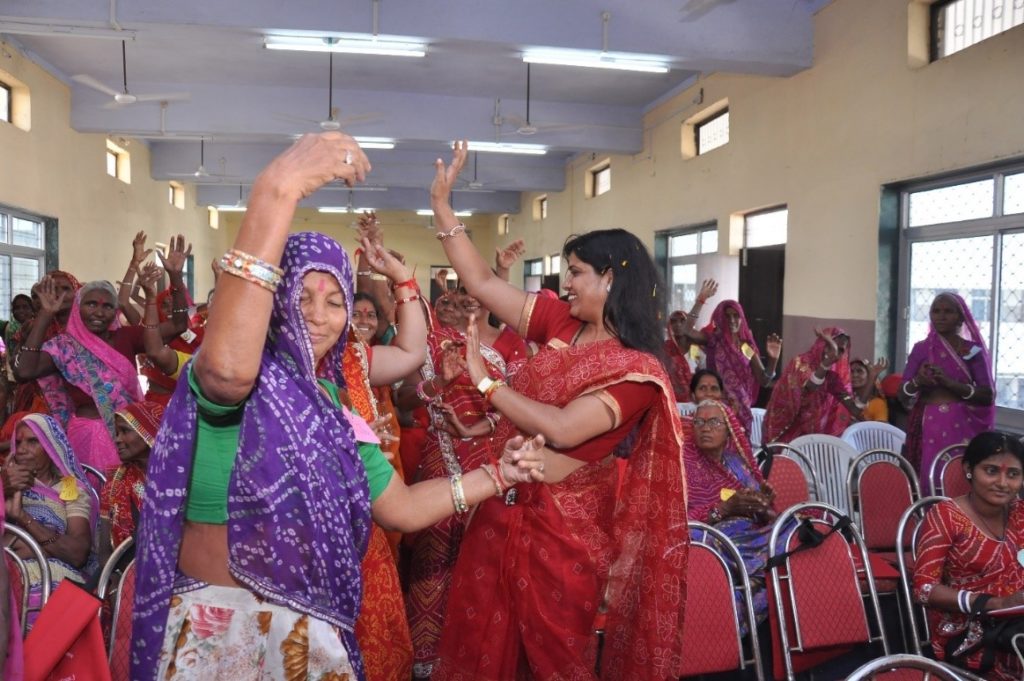This article was published more than 6 years ago.
In honor of International Women’s Day, we’re celebrating six trailblazing women whose extraordinary human rights work is transforming communities across the globe. From changing laws on gender-based violence and LGBTI discrimination, to helping single mothers become self-reliant and overcome social exclusion, they are building a better world.
The Fund for Global Human Rights is proud to support these courageous, groundbreaking women who are helping to bring about greater freedom, justice, and equality for all.

Tina Musuya – Uganda
In Uganda, where more than half of women have experienced physical or sexual violence, Tina Musuya is a leader in mobilizing women and men to end gender-based abuse. As Executive Director of the Centre for Domestic Violence Prevention (CEDOVIP), she raises awareness of how gender inequity and violence are linked and helps develop community education programs that help build healthy, respectful domestic relationships. CEDOVIP’s innovative SASA! model has been implemented in 20 countries, and communities who have gone through the program have a 52% lower rate of physical and partner violence against women. Click here to learn more about their incredible work.

Las abuelas of COFAMIPRO – Honduras
The mothers and grandmothers (abuelas) of COFAMIPRO are an unstoppable force in Honduras. They work to support mothers and families whose children and loved ones have disappeared while attempting to migrate outside the country. Many Honduran migrants—often fleeing violence, persecution, and poverty—are forcibly disappeared by gangs, traffickers, or corrupt officials, leaving their families with no answers about their whereabouts. The abuelas of COFAMIPRO work tirelessly to find and restore contact with these migrants, and when needed, to repatriate bodies so that families can bury their loved ones. They also provide counseling to families and advocate for humane, protective migrant policies throughout the Americas.

Note – Thailand
After coming out as transgender in Thailand,Note was rejected by her family and friends, and was physically and emotionally tormented at school. To push back against trans discrimination, Note joined 9 fellow trans activists to found the Thai Transgender Alliance, which helps counter misinformation about the trans community and advocates for policies that better protect them. In 2011, the organization helped secure a critical legal victory that ended the practice of labeling transwomen as “mentally ill” when reporting for compulsory military conscription—a permanent designation that often precluded them from securing housing and jobs.

Rebah Ben Chaaben – Tunisia
When an unmarried woman in Tunisia becomes pregnant, she is socially outcast. The stigma is so strong that many women are forced to abandon their babies in orphanages. For these mothers, Rebah Ben Chaaben and the Association for Family and Children is a lifeline—the only organization dedicated to providing single mothers and their children with housing, healthcare, psychological support, and vocational training. Rebah and Amal also connect single mothers with job placement and legal services so that they can be economically self-sufficient and secure bright futures for their children.

Indyra Mendoza – Honduras
One of the challenges of securing human rights victories for LGBTI people is documenting evidence of abuse, especially in challenging contexts. Indyra Mendoza, the Executive Director of Cattrachas in Honduras, has made this seemingly impossible task her life mission. She and her organization advocate for public policy around ending violence against LGBTI people and obtaining justice for those assaulted or killed. A key part of their work is media monitoring and verification of incidents of violence. Cattrachas has developed and pioneered a data recording system that has been replicated in Guatemala, Nicaragua, and El Salvador. In 2015, thanks to Cattrachas-led advocacy, the United Nations made 13 recommendations to the Honduran government on ending discrimination against LGBTI people.

The Women of ASWA – India
While the Behen Dooj festival in Rajasthan, India may look like a women-only dance party, the event, launched by the Association of Strong Women Alone (ASWA), provides vulnerable women with a safe, supportive space. In many parts of India, women are defined by their marital status: Widowed, single, deserted, or separated women are shunned from social events, cannot inherit land, and are often unable to find work. Through the festival, literacy and advocacy training, and public policy, ASWA helps “alone” women find solidarity, speak out against discrimination, and live with joy and security.


